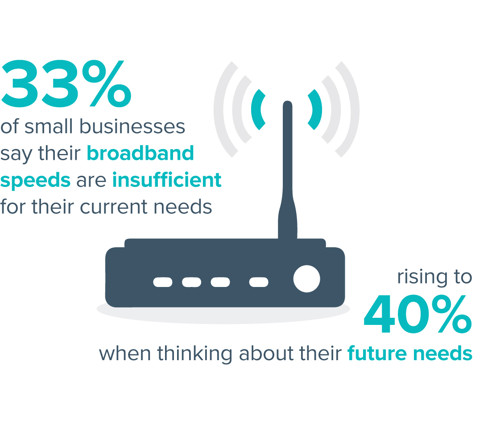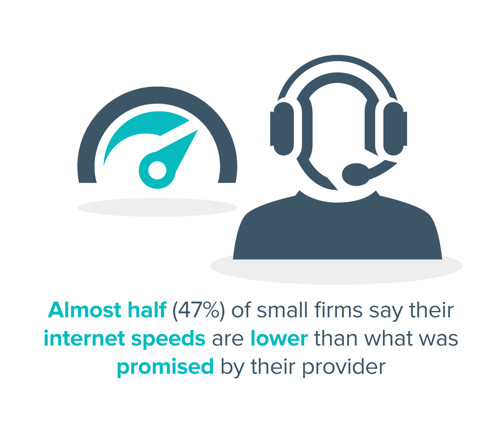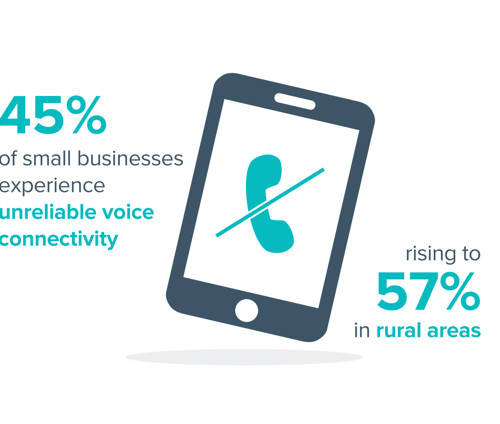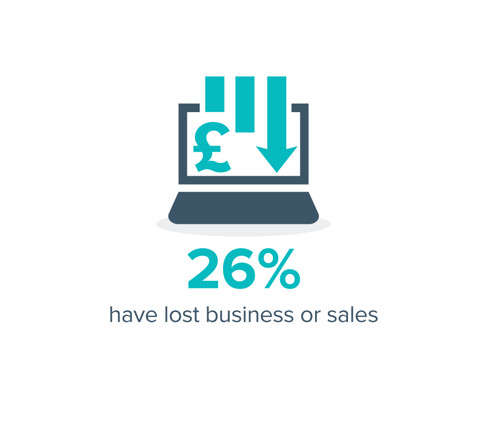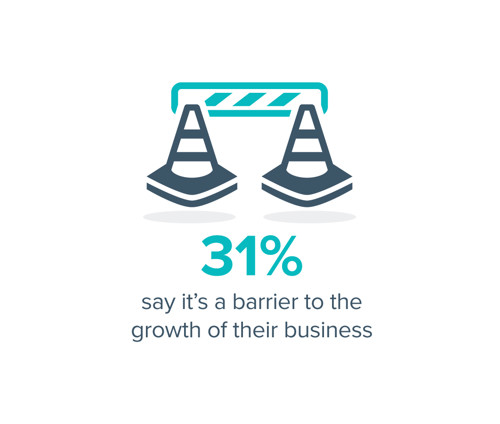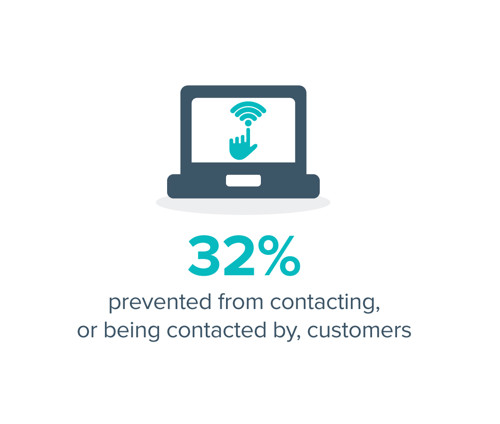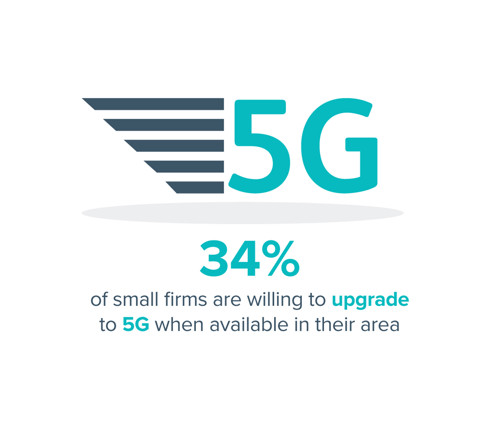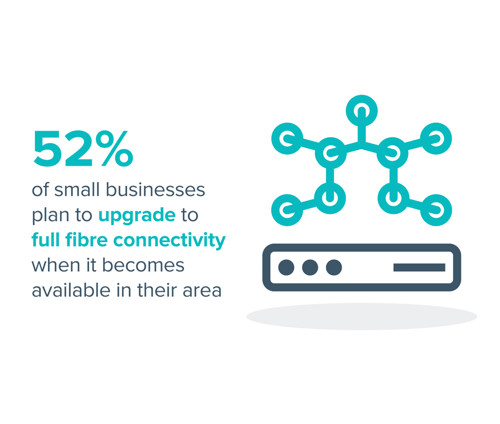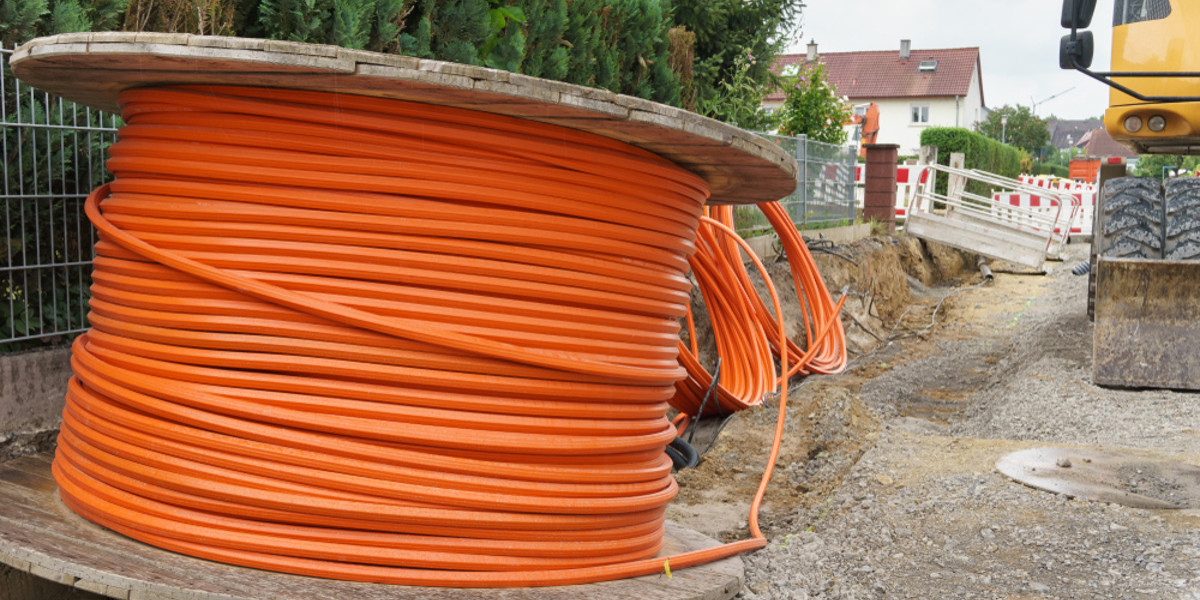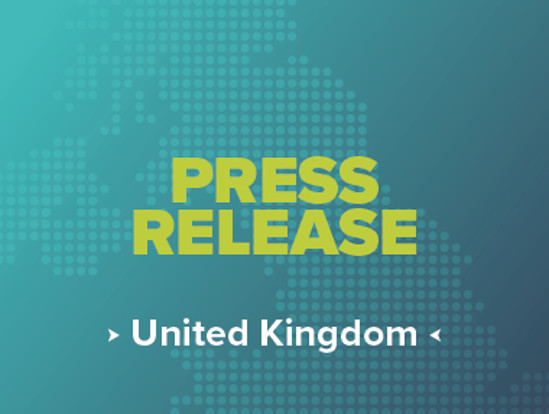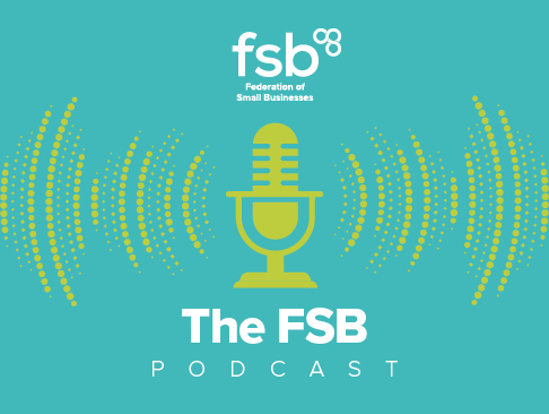Foreword
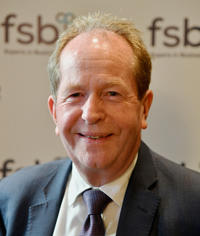
FSB Policy and Advocacy Chairman
Improving digital infrastructure across the UK is an urgent priority. Whether in relation to broadband or mobile connectivity, digital infrastructure is a critical enabler of productivity and broader business competitiveness both within the UK and globally.
The way that business is being done is changing. The adoption of digital technology to enhance productivity, the increasing usage of e-commerce and the fact that an ever-increasing number of Government services are being delivered online, makes the importance of fit for purpose digital infrastructure paramount.
The UK Government, the regulator Ofcom, and the private companies operating in the telecoms market need to work together to achieve a major improvement in broadband and mobile connectivity, to help unlock the potential of the UK.
FSB research clearly shows the difficulties experienced by small businesses that receive download speeds of less than 10 megabits per second (Mbps) in their day to day activity. This is despite the fact that almost half of such businesses are paying over £40 a month for their broadband, with a quarter paying more than £60 a month.
This report also exposes the plight of small firms in rural areas that are particularly disadvantaged by low speeds, with 39 per cent of them receiving download speeds of less than 10 Mbps.
FSB welcomes the Government’s commitment that everyone in the UK will have access to full fibre or gigabit capable broadband by 2025. It is important to show reinvigorated ambition given that the UK is still far behind most other EU countries in relation to full fibre, ranking at 25 out of 28 EU countries.
For those small businesses most affected by poor connectivity, we want to see a corresponding commitment to ensure that no business is in receipt of download speeds of less than 10 Mbps by the end of 2021. The Universal Service Obligation (USO), coming into force at the beginning of next year, is a promising start, but more needs to be done.
The shared rural network proposals made by the four mobile network operators are a step in the right direction. If necessary, Government and Ofcom may need guarantees from the mobile network operators in exchange for removing coverage obligations and subsidising some of the extra costs involved.
Inclusiveness of mobile connectivity is paramount as we move towards 5G if all in the UK are to benefit. It should not be forgotten that improving access to 4G and improving voice connectivity would provide immediate benefits to many of those currently experiencing unreliable connectivity and poor coverage.
Whether in relation to broadband provision or mobile and data connectivity, Ofcom should extend the existing compensation schemes that apply to consumer contracts to business contracts. This would show all that Government is serious about incentivising private sector companies working in the telecoms space. This will help to ensure that small business connectivity is taken seriously, rather than being a luxury, and will level the playing field with consumer contracts.
The Government has made its ambitions clear; now it must translate words into action to help millions of small businesses to boost their productivity and power the UK economy post-Brexit.
Downloading
30% of small businesses receive download speeds of less than 10 Mbps
Broadband speeds
Broadband speeds are insufficient for current needs
Provider
Internet speeds are lower than what was promised
Mobile connectivity
Voice connectivity is unreliable
Impact on Sales
26% of businesses lost sales due to connection issues.
Impact on Growth
31% of Businesses have their growth hampered by connection issues
Impact on Contact
32% have difficulty communicating with their customers
5G Availability
34% of firms are waiting to upgrade to 5G when it becomes available
Availability of Fibre
52% of Businesses are planning to upgrade to full fibre connectivity when it becomes available
Executive summary
Introduction
Digital infrastructure in the UK needs to be improved as soon as possible so that small businesses and consumers can significantly contribute to the growth of the economy. The National Infrastructure Commission, in its first National Infrastructure Assessment, noted that: ‘In the past, the UK had the ambition and foresight to connect the whole country to electricity, water and transport networks. The benefits today are obvious. The same ambition is needed now for digital infrastructure.’1
Given the high importance of digital connectivity to conducting business, it is of real concern that the digital infrastructure of the UK is still limiting, rather than helping, the growth of the economy, with a third of small businesses saying that their current speeds are not sufficient. The UK lags significantly behind most EU countries on full fibre coverage, relying on an ageing copper network to provide the final connection to premises.
The National Infrastructure Assessment also makes this clear, with broadband highlighted as a priority that needs to be addressed in the short-term because it represents ‘major opportunities for growth… particularly time critical if the UK is to remain internationally competitive.’ 2
In addition to the required improvements in infrastructure, there are also important market issues that need to be addressed.
Mobile connectivity is also moving into its next generational iteration, 5G, the benefits of which need to be shared across the whole of the UK. Existing voice and 4G coverage will also need to be improved so that large areas of the UK are not left behind in their connectivity.
Comprehensive broadband and mobile connectivity would enable small businesses to carry out their everyday business with full confidence. Businesses need to be able to access customers online, through websites and social media, and use digital tools such as accounting software. An ever increasing number of government services are being made available online, with some of them essential for businesses to access, e.g. Making Tax Digital. In addition it would allow innovation to take place, adopting technologies such as cloud computing applications and Artificial Intelligence, which can enable a business to grow and become more productive.
This report outlines practical measures that can be undertaken by all those actors involved in broadband and mobile connectivity policy and provision to improve connectivity for all.
Summary
Small businesses continue to be badly affected by poor connectivity, for both broadband and mobile. Many small businesses still don’t receive a decent broadband connection from their providers, and yet are still paying equivalent costs to those with much better connections. Mobile coverage in both voice and data connections needs to significantly improve so that small businesses can use their smartphones and devices with confidence, and without inhibiting their ability to conduct day to day business.
This report is split into five parts. The first two sections explore the broadband connectivity of small businesses in detail, looking at their current connectivity, future needs, and the policy outlook for improving connectivity.
The report then outlines the stark consequences of poor broadband and mobile connectivity for small businesses, providing an empirical case for showing why inaction in improving connectivity is not a viable option.
FSB operates throughout the UK, and so the final chapter brings together the policy pictures in Scotland, Wales and Northern Ireland, outlining the specific challenge that each nation has in improving connectivity.
Taken together, these sections show the generally negative state of both broadband and mobile connectivity in the UK for small businesses. There is cause for optimism if the opportunities for improvement that have arisen in both types of connectivity are taken up by Government, the regulator Ofcom, and the telecoms providers themselves.
1 National Infrastructure Commission, National Infrastructure Assessment 2018, p25, https://www.nic.org.uk/publications/national-infrastructure-assessment-2018/
2 National Infrastructure Commission, National Infrastructure Assessment 2018, p114, https://www.nic.org.uk/publications/national-infrastructure-assessment-2018/
Key findings
Download speeds:
-
 30 per cent of small businesses receive download speeds of less than 10 megabits per second (Mbps).
30 per cent of small businesses receive download speeds of less than 10 megabits per second (Mbps). - 39 per cent of small businesses in rural areas receive download speeds of less than 10 Mbps.
- One third (33%) of small businesses consider their broadband speeds to be insufficient for their current needs, rising to 40 per cent when considering their future needs.
- 39 per cent of small businesses in rural areas consider their broadband speeds to be insufficient for their current needs, rising to 46 per cent when considering their future needs.
- Over two thirds (68%) of small businesses that currently receive download speeds of less than 10
- Mbps consider their broadband speeds to be insufficient for their current needs, rising to three quarters (75%) for those considering their future needs.
- Only 74 per cent of those that currently receive download speeds of less than 10 Mbps think that they will benefit from the Universal Service Obligation (USO).
Digital infrastructure:
-
 Full fibre and leased line connectivity take up among small businesses (14%) is much higher than the national average (estimated to be 2%).
Full fibre and leased line connectivity take up among small businesses (14%) is much higher than the national average (estimated to be 2%). - Over half (52%) of small businesses plan to upgrade to full fibre connectivity when it becomes available in their area.
- 72 per cent of small businesses that currently receive download speeds of less than 10 Mbps plan to upgrade to full fibre connectivity when it becomes available in their area.
Reliability and value for money:
-
 41 per cent of small businesses consider that their broadband is often unreliable.
41 per cent of small businesses consider that their broadband is often unreliable. - Almost half (47%) of small businesses report that the speeds they receive are often lower than the speeds they were promised by their provider when they first signed up.
- 70 per cent of small businesses that currently receive download speeds of less than 10 Mbps report that this is lower than the speeds they were promised by their provider when they first signed up.
- Almost half (49%) of small businesses that currently receive download speeds of less than 10 Mbps are paying over £40 a month for their broadband, with a quarter (25%) paying over £60 a month.
Mobile:
-
 45 per cent of small businesses experience unreliable voice connectivity.
45 per cent of small businesses experience unreliable voice connectivity. - 57 per cent of small businesses in rural areas experience unreliable voice connectivity.
- Almost half (47%) of small businesses experience unreliable data connectivity.
- 59 per cent of small businesses in rural areas experience unreliable data connectivity.
- Around a third (34%) of small businesses are willing to upgrade to 5G when it becomes available in their area.
Broadband and mobile:
Impact of poor broadband or mobile connectivity on small businesses’ performance and growth:
- Just under a third (32%) of small businesses have been prevented from contacting, or being
- contacted by, customers.
- 31 per cent of small businesses report that it is has been a barrier to the growth of their business. This figure rises to 49 per cent for small businesses that currently receive download speeds of less than 10 Mbps.
- 26 per cent of small firms say that they have lost business or sales as a result, rising to
- 36 per cent for those that currently receive download speeds of less than 10 Mbps.
Recommendations
Full details on each of the above recommendation areas are provided in the downloadable report below.
Download the full report



